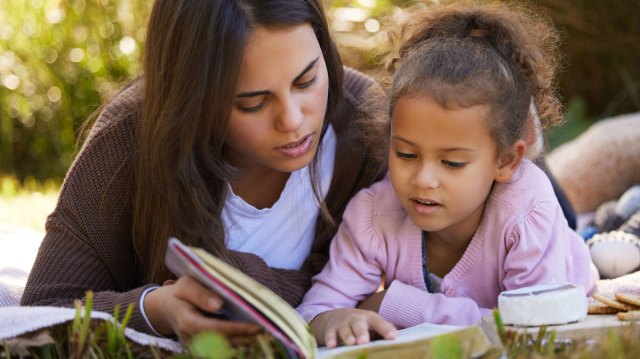A new study shows that kids who read for fun when they’re young have better cognitive performance and mental health when they hit their teenage years
While most kids these days reach for devices with screens when they have free time to kill, there’s a lot of evidence that parents might want to encourage them to pick up a book instead. In addition to the imagination-boosting power of stories, a new study found evidence that kids who read for pleasure when they’re younger tend to score higher on cognitive tests and experience better mental health when they reach adolescence.
Researchers in the U.K. and China studied 10,000 U.S. kids and found that those who had started reading for pleasure by age nine had brain scans that showed larger, healthier, and better-developed brains. Those kids also performed better on tests for memory, speech, verbal learning, and general academics, and they slept longer and spent less time looking at screens.
The researchers also found that the sweet spot for seeing cognitive effects was getting kids to read for 12 hours a week—so about two hours a day. They noted that kids who read more than that were actually at risk of negative cognitive effects since spending so much time reading could mean they were missing out on other activities that help kids build cognitive and social skills.
“Reading isn’t just a pleasurable experience—it’s widely accepted that it inspires thinking and creativity, increases empathy, and reduces stress,” study author professor Barbara Sahakian said in a release. “But on top of this, we found significant evidence that it’s linked to important developmental factors in children, improving their cognition, mental health, and brain structure, which are cornerstones for future learning and well-being.”
There is one other important caveat to this data, though: kids from affluent families are more likely to read for pleasure, and perform better on cognitive and academic tests. They’re also less likely to experience stressors (like food and housing insecurity) that can influence their mental health. So while reading is likely great for kids, we can’t ignore the socio-economic factors that are also always at play.











